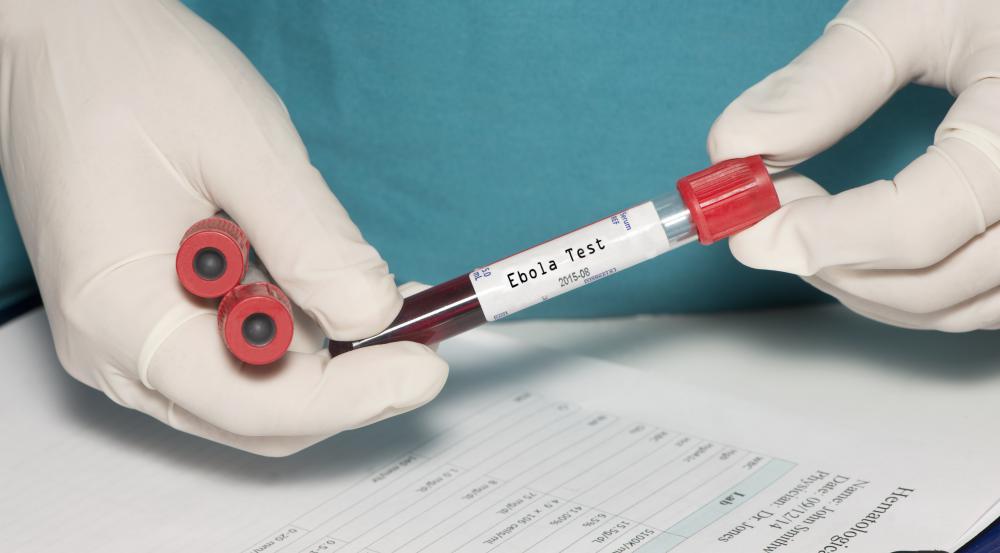At WiseGEEK, we're committed to delivering accurate, trustworthy information. Our expert-authored content is rigorously fact-checked and sourced from credible authorities. Discover how we uphold the highest standards in providing you with reliable knowledge.
What are Polyclonal Antibodies?
Polyclonal antibodies are antibodies which have been derived from multiple B cells or cell lines. A preparation of these antibodies bears some resemblance to the antibody variety found in normal serum, which is the fluid component that separates from clotted blood. The resemblance is due to the fact that antibodies that are polyclonal recognize different epitopes and have different degrees of specificity. In contrast, the antibodies in a monoclonal preparation are derived from one clonal type and recognize the same epitope with the same degree of specificity.
To produce custom polyclonal antibodies, an animal such as a chicken, mouse or rabbit is immunized with an antigen and adjuvant preparation. The animal’s immune system is stimulated to produce B cells which secrete antibody that is specific for the antigen. After a period of time, typically several weeks or even months, the animal’s serum is harvested.

Custom polyclonal antibody preparations are usually a mixture of antibody specificities which all recognize the same antigen. The specificity difference means the antibodies bind with differing strengths to different epitopes on the antigen. The serum can be used as is once it has been separated from the whole blood, and can also be further purified if desired. Blood serum that contains polyclonal antibodies is known as antiserum.

Polyclonal antibodies are used experimentally and in clinical medicine for a variety of reasons. Polyclonal preparations are generally easier and less expensive to generate than monoclonal antibodies, and they are also able to withstand greater variation in temperature and pH. In medicine the most common use of polyclonal antibodies is to confer passive immunity to certain diseases. The only effective treatment for Ebola, for example, is a transfusion of serum antibodies from a human survivor of the virus.

In diseases such as Ebola this is effective because the virus multiplies and acts so quickly within the body that the immune system does not have time to mount its own defense. When someone becomes infected with the Ebola virus, he or she dies long before the immune system can combat the virus. The only effective treatment is therefore the protection conferred by the antiserum of someone who has encountered the infection previously.

Another medical use for antiserum is as antitoxin or antivenin. These preparations contain antibodies specific for venom from poisonous reptiles, arachnids, and insects. They are used to treat people who have been bitten or stung by these animals, again because the venom acts too quickly in the body for the immune system to mount a defense.
AS FEATURED ON:
AS FEATURED ON:














Discussion Comments
Can you give more info about monoclonal antibodies please? I found it really hard to understand!
Post your comments